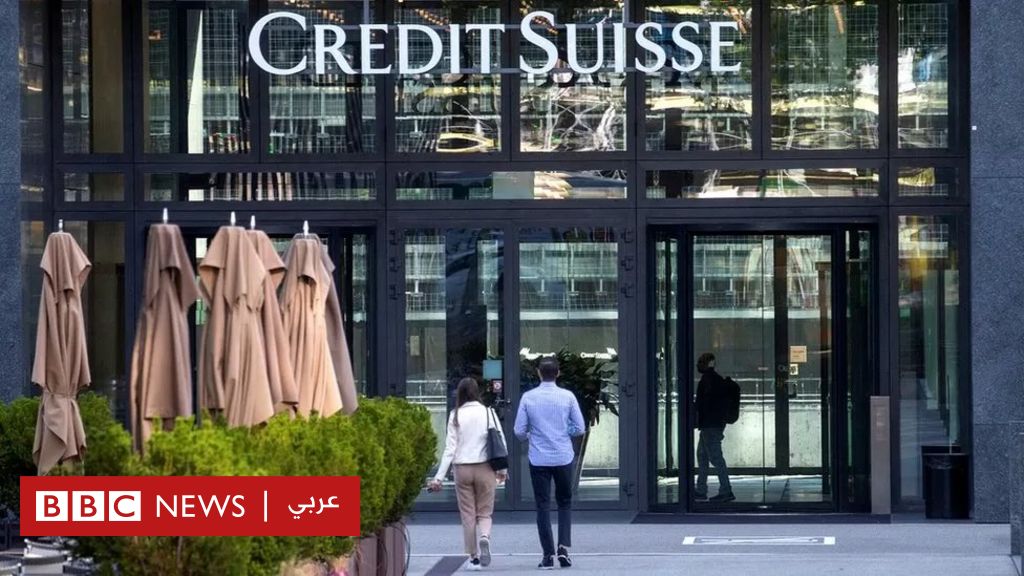- Simon Reed
- Business and Finance Editor, BBC
The collapse of the American bank sparked investor fears
Bank stocks recorded a sharp decline in the global financial markets, due to the confusion of investors, following the collapse of Silicon Valley Bank in the United States, last week.
The bankruptcy of “SVB” reinforced fears that other banks will face similar problems.
Shares of the giant Swiss bank, Credit Suisse, recorded a record decline of 20 percent.
This happened after the largest investor in the bank stated that he could no longer provide more financial support.
Stock indices in Europe, such as the FTSE 100 in Britain, fell by 2.5 percent, in the early hours of the morning.
The FTSE 100 fell last week by 6 percent, reaching its lowest point in three months.
“Investors are still apprehensive about what might happen,” said Ross Mould, chief investment officer at IG Bell.
He added, “It is not surprising that investors remain wary of major banks, knowing that the credit rating agency Moody’s lowered its assessment of the US banking system to”negative”.
Credit Suisse shares tumbled after it revealed, on Tuesday, that the auditing agency, PwC, had detected “material deficiencies” in its financial reporting system.
This prompted one of the major investors, the Saudi National Bank, to declare that it would reject any requests to deposit more funds with the Swiss bank.
Broader problems in the banking sector were highlighted last week by the collapse of Silicon Valley Bank, ranked 16th among the largest US banks.
The bank, which specializes in lending to technology companies, was closed on Friday, by order of the US regulator, in a process described as the largest bankruptcy of a US bank since 2008.
As for the “SVB” branch in Britain, it was acquired by the “HSBC” bank, at a value of 1 pound sterling.
After the bankruptcy of the Silicon Valley bank, it was the turn of Signature Bank in New York to close its doors as well. The US regulator has guaranteed all deposits in the two banks.
However, fears of the bankruptcy of other banks persisted, which led to fluctuations in trading in bank stocks during the week.
On Monday, trading stopped temporarily in many small American banks, due to the decline in stocks, although the stock market recorded a recovery on Tuesday.
But the US credit rating agency Moody’s warned that more pain awaits the US banking system.
On Tuesday, it downgraded its rating to “negative” after it was classified as “stable”, warning of a “rapid exacerbation in the transaction environment.”
“The concern is that banks that are managing with large losses in their bonds, without realizing it, may not find enough funds to fill the shortfall in the event of a rapid withdrawal of deposits,” said Susannah Streeter, head of money and markets at Hargreaves Lansdon.
“Although the big banks are not at risk, thanks to the amount of money they have and the stable nature of their deposits, the confusion is palpable.”


